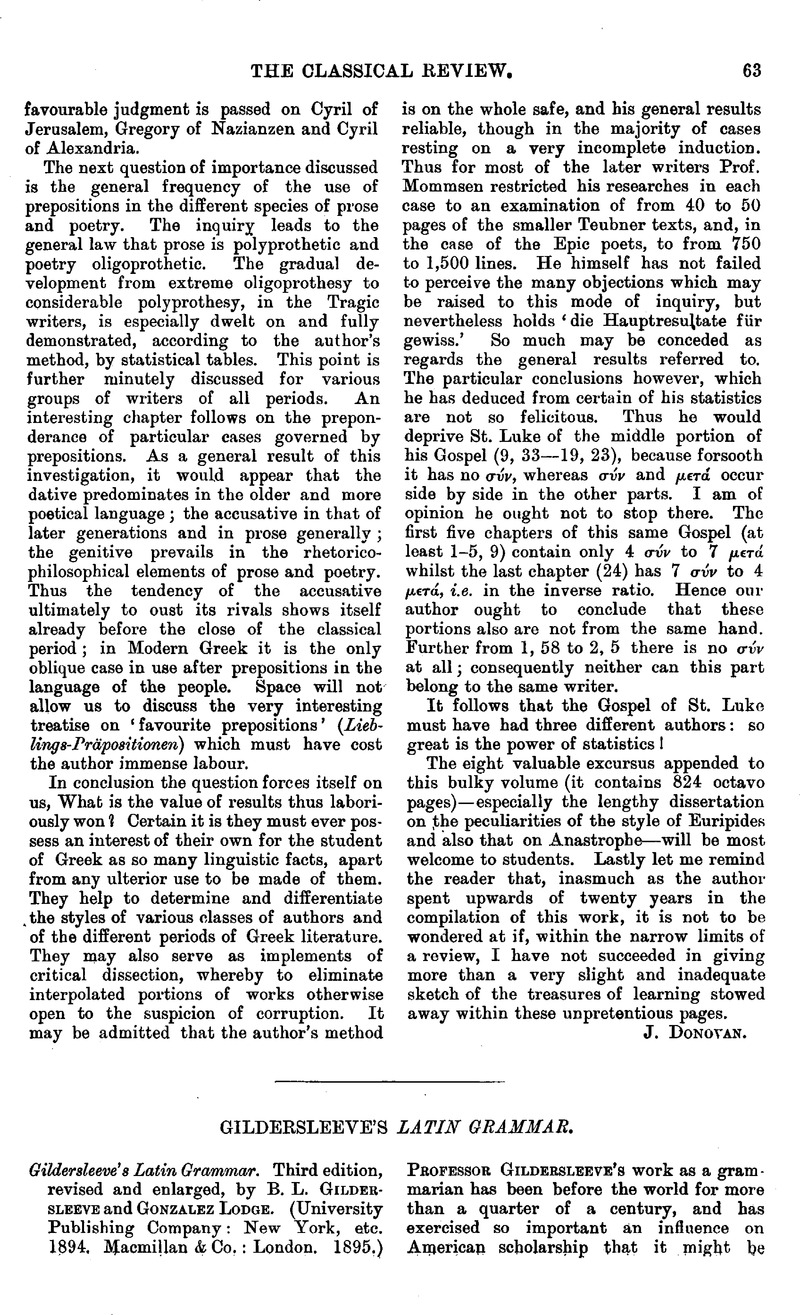No CrossRef data available.
Published online by Cambridge University Press: 27 October 2009

page 64 note 1 In regard to the question of the negative in deliberativequestions some pronouncement on Elmer's theory might have been expected (in § 265).
page 65 note 1 The word ‘anticipatory’ seems to have been first used by Gildersleeve; see note by Hale, op. cit. p.6. NO. LXXXIV. VOL. X.
page 65 note 2 This is recognized so far as the future indie, is concerned in note 2 to § 571, but without saying that the imperfect as well as the present subjunctive may represent the future indie. These historical notes ought in many instances to have produced more reaction upon the rules given in the text, and there ought to have been more ofa line of demarcation between the usages of different periods in the text, Livian usage being treated apart.
page 66 note 1 Ought the supine of sto to be given as stālum (with long vowel)? There is no direct evidence for the supine at all, except that Priscian mentions it (with a short vowel); against -stātūrus, which alone appearsin § 151, we may set the nouns stᾰtus, stᾰbulum, etc., and the supine of sisto (stᾰtum).
page 66 note 2 It must be remembered however that Marx changed his views upon the quantity of a large number of important words between his first and his Second edition.